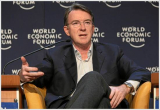
The Democratic Republic of Congo is on the brink of revealing its election outcome, with President Félix Tshisekedi taking a considerable lead over opposition contenders demanding a re-vote.
With approximately 72% of the announced votes in favor of President Tshisekedi, his second term seems imminent as the results are expected to unfold shortly.
The December 20 election faced significant logistical hurdles, experiencing widespread delays and malfunctions. Many parts of the vast nation had to extend voting to a second day due to these issues.
Reports from observer groups revealed that about two-thirds of polling stations opened late, with 30% of voting machines malfunctioning. This led to prolonged waits for voters, while some were compelled to leave without casting their ballots.
The opposition has strongly criticized these challenges, alleging a deliberate ploy to manipulate results in favor of Mr. Tshisekedi. This sentiment was echoed in a joint statement calling the election a "sham" and urging mass protests post-announcement.
Despite acknowledging irregularities, election commission head Denis Kadima defended the results, claiming they reflect the genuine will of the Congolese people. He rebutted opposition claims by stating that they contest the outcome because "they know they lost."
Notably, former Kenyan President Uhuru Kenyatta congratulated Tshisekedi on his re-election in a now-deleted message on X.
Moise Katumbi, a prominent figure in football and mining, stands in second place with about 18% of the vote, followed by Martin Fayulu, a former oil executive who asserts he was deprived of victory in the 2018 election, with roughly 5%.
While the number of open polling stations and total votes cast remains unspecified, 17.8 million votes have been tallied from 55,000 out of 76,000 stations, with 44 million registered voters.
The likelihood of legal challenges to these results remains uncertain, particularly as Katumbi expressed skepticism about the independence of the courts.
The Constitutional Court has a 10-day window to address any legal disputes before announcing the final results on January 10, 2024, with the inauguration set for January 20.
DR Congo, four times the size of France, grapples with infrastructure deficiencies, even among its major cities. A significant portion of its 100 million population lives below the poverty line, earning less than $2.15 (£1.70) daily.
The elections encompassed choices for parliamentary, provincial, and municipal representatives, with a staggering 100,000 candidates in the running.
However, parts of the eastern region didn’t participate due to longstanding conflict spanning three decades. The area houses valuable mineral reserves, including cobalt, crucial in lithium batteries, envisioned for a fossil fuel-free future. Photo by WINEUR, Wikimedia commons.








































